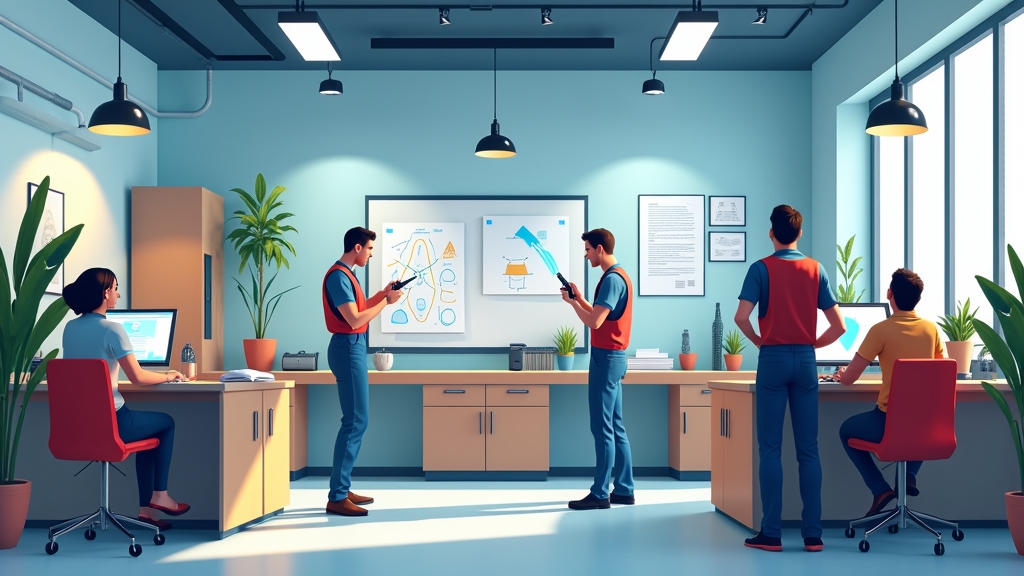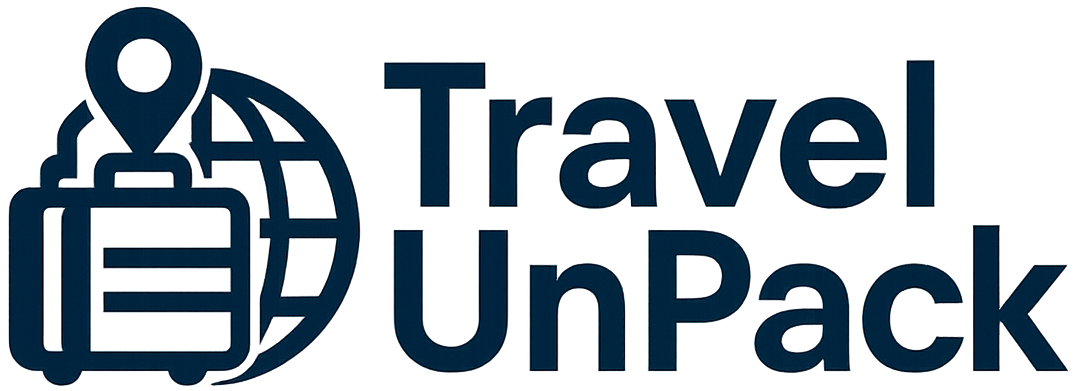The Brazilian job market is constantly changing, and one of the areas that has stood out is technical services, particularly the plumbing sector. With increasing urbanization and the growing demand for quality infrastructure, the profession of plumber has become more valued than ever.
For those considering entering this market, a plumbing course can be the perfect starting point. This article offers a complete guide to everything you need to know before enrolling on a plumbing course, from choosing the right course to the career opportunities available upon completion.
What is a Plumbing Course?
A plumbing course is an educational program designed to provide students with the knowledge and practical skills needed to work in the field of plumbing. Courses are structured to cover a wide range of topics, from basic fundamentals to advanced techniques. Students learn about piping systems, blueprint reading, installation and maintenance of hydraulic equipment, and many other topics that are essential for professional practice.
The duration of a plumbing course can vary greatly, from a few months to over a year, depending on the level of specialization and the certifications offered. Many programs combine theoretical lessons with practical training to ensure that students can apply what they have learned in real-life situations. In addition, some courses offer supervised internships, which are an excellent opportunity to gain practical experience.
Choosing the right course is crucial to a successful career as a plumber. It's important to consider the reputation of the institution, the experience of the instructors and the job opportunities upon completion. Some courses are offered by technical institutions and vocational schools, while others can be found at universities and colleges.
For those who already have some experience in the field, there are advanced courses that offer specialization in specific areas, such as heating systems or water treatment systems. These courses are ideal for professionals who want to expand their skills and increase their career opportunities.
The importance of a plumbing course
The importance of a plumbing course cannot be underestimated, especially in a competitive job market. A well-structured course not only provides the necessary technical knowledge, but also develops practical skills that are essential for day-to-day work. In addition, many courses offer market-recognized certifications, which can be a significant differentiator when looking for a job.
One of the main benefits of completing a plumbing course is job security. Trained professionals are less likely to make mistakes that could result in accidents or system failures. This not only protects the professional, but also customers and the work environment. Proper training also teaches students how to deal with emergency situations, which can be crucial in many scenarios.
Another important aspect is constantly updating the curriculum. The plumbing sector, like many others, is constantly evolving due to new technologies and regulations. An up-to-date plumbing course ensures that students are aware of the latest industry trends, tools and practices, giving them a competitive edge.
In addition, a plumbing course can open doors to career opportunities in a variety of sectors, such as construction, building maintenance and public services. The demand for qualified plumbers is high, and the right training can make it easier to get into desirable workplaces. For many, the course is also a step towards opening their own business, offering plumbing services to residential and commercial clients.
Choosing the right course
Selecting the right plumbing course can seem challenging, given the number of options available. However, a few guidelines can help make this process easier. Firstly, it is vital to consider the reputation of the school or institution offering the course. Researching the institution, reading reviews from former students and checking accreditations can give you a good idea of the quality of the course.
The length and content of the course are also key factors. Some courses offer intensive training in a short period, while others extend over a longer time, providing a more comprehensive education. Prospective students should assess their needs and objectives before making a decision. In addition, it is important to check whether the course includes practical components, such as internships or workshops, which are crucial for applying theoretical knowledge.
Another point to consider is the cost of the course. Fees can vary significantly, and it's important to make sure the investment is worthwhile. Some institutions offer scholarships or flexible payment plans, which can ease the financial burden. In addition, some courses are eligible for government funding, so it's worth investigating these options.
Finally, the location of the course can be a deciding factor. While some may prefer a course close to home, others may be willing to move to a different location if the course is particularly renowned. With the rise of online courses, many programs now offer the flexibility to complete part or all of the course remotely, making learning more accessible.
Course Structure and Content
The structure and content of a plumber's course are designed to provide a solid foundation in all aspects of plumbing. Most courses start with the fundamentals, including an introduction to piping systems, types of materials used and basic plumbing tools. These initial modules are crucial for establishing a basic understanding of the profession.
After covering the basics, courses usually move on to more complex topics, such as installing heating systems, water treatment and sewage systems. Students also learn about reading and interpreting blueprints and how to carry out calculations needed to design effective systems. This progression ensures that students develop a comprehensive understanding and can handle a wide variety of tasks.
A critical component of the course is practical training. Most courses include laboratories and workshops where students can apply what they have learned in a controlled environment. These practical sessions are often supervised by experienced professionals, offering students valuable feedback and the opportunity to correct mistakes in real time.
Some courses also offer optional modules or specializations that allow students to focus on specific areas of interest, such as industrial plumbing or sustainable water systems. These specializations can be particularly valuable for students who want to stand out in the job market or pursue a career in a specific niche within the plumbing sector.
Career opportunities after the course
Completing a plumbing course can open the door to a variety of career opportunities. The demand for qualified plumbers is high, with opportunities in sectors such as construction, building maintenance, utility companies and even specialist consultancies. In addition, many plumbers choose to work independently, offering services directly to residential and commercial clients.
Working for a construction or maintenance company can be an attractive choice for recent graduates, as it offers stability and the chance to gain experience on both large and small projects. Many companies offer ongoing training programs, which can be beneficial for long-term professional development.
For those who prefer the flexibility of self-employment, starting their own business can be a lucrative option. A self-employed plumber can establish their own clientele, set their own working hours and even specialize in specific areas of plumbing. However, this choice also requires business management and marketing skills to stand out from the competition.
Some plumbers also choose to pursue careers in related areas, such as teaching or consulting. With enough experience, it is possible to become an instructor at a technical school or offer consultancy services to companies looking to optimize their plumbing systems. This diversity of options makes plumbing an attractive profession for many.

Challenges in the Plumbing Profession
Although the plumbing profession offers many opportunities, it also comes with its challenges. One of the main challenges is the physical nature of the work. Plumbers often work in cramped spaces, carry heavy tools and have to adopt uncomfortable postures. This means that good physical condition is generally necessary for the day-to-day work of the profession.
Another challenge is the need for constant updating. As technologies and practices evolve, plumbers must stay informed about the latest trends and regulations. This may mean attending additional courses or participating in workshops and seminars to ensure that their skills remain relevant.
In addition, the profession can be unpredictable in terms of working hours. Plumbing emergencies can occur at any time, requiring professionals to be available outside conventional business hours. For many, this can mean working nights, weekends or even holidays.
The financial aspect can also be a challenge, especially for self-employed plumbers. Establishing a solid customer base and ensuring a steady flow of work can take time. In addition, business management, including accounting, marketing and customer service, are additional responsibilities that must be managed. However, with planning and dedication, these challenges can be overcome, leading to a rewarding career.
Conclusion
The plumbing course is a gateway to a dynamic career that is constantly in demand. With increasing urbanization and the need for quality infrastructure, the plumbing profession not only offers stability, but also a variety of career paths. Choosing the right course is crucial, as it provides the skills and knowledge needed to succeed.
With proper training, plumbers can look forward to stable jobs, the opportunity to work in a variety of sectors and even the possibility of starting their own business. However, it is important to be aware of the challenges, such as the physical nature of the work and the need for continuous updating.
Overall, for those who are willing to invest time and effort in their education and training, a career as a plumber can be extremely rewarding. Whether you're just starting out or a professional looking to specialize, a plumbing course can be the first step on a successful journey.
FAQ
What are the prerequisites for enrolling in a plumbing course?
Most courses require applicants to have completed primary or secondary school. Some institutions may require interviews or basic aptitude tests.
How long does it take to complete a plumbing course?
The duration varies, but most courses can be completed in between 6 months and 2 years, depending on the level of specialization.
Can I take a plumbing course online?
Yes, many courses offer theoretical modules online, but practical components usually need to be completed in person.
Is the plumbing course expensive?
Costs vary, but many programs offer financing options, scholarships and payment plans.
What kind of certification do I get after completing the course?
Certification depends on the course and the institution. Certificates recognized by the market are an indication of quality.
Is there a demand for plumbers in the job market?
Yes, there is a high demand for qualified plumbers in various industries.
Can I work internationally as a plumber?
Yes, but you may need to obtain additional certifications to work in other countries.
What is the average salary of a plumber in Brazil?
Salaries vary according to region and experience, but the average is competitive with other technical professions.
What skills are essential for a plumber?
Manual skills, problem solving, good communication and the ability to read blueprints are essential.
Do I need previous experience to take the course?
No, many courses are designed for beginners, but any previous experience can be an advantage.
What specializations are available in plumbing courses?
Some specializations include industrial plumbing, heating and sustainable water systems.
How can I sign up for a plumbing course?
Visit the website of your chosen institution for details on enrollment and specific requirements.
Do plumbing courses offer practical training?
Yes, many courses include practical components or internships for real-world experience.
Do plumbers need to renew their certifications?
It depends on the region and local regulations, but it is common to have periodic updating requirements.
What should I consider when choosing a plumbing course?
Consider the reputation of the institution, the curriculum, the certifications offered and post-course job opportunities.



